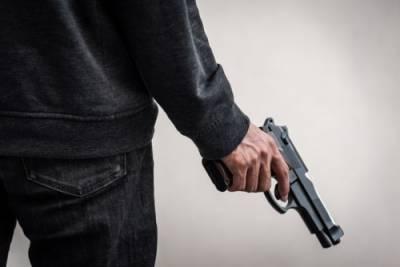Will I Face Bail Restrictions if I Am Arrested for Weapons Charges?

In Texas, many people value their Constitutional rights that allow them to possess and carry firearms. However, there are a variety of situations where people may run afoul of weapons laws, and they may be arrested based on offenses related to the possession or use of guns or other weapons. Being arrested is often a frightening and confusing experience. In addition to addressing criminal charges, people in these situations will also need to determine how they can get released as quickly as possible. They will also need to understand the restrictions that may apply after they get out of jail. The criminal justice system can be complicated to navigate, and many people are unsure of what to expect during the process. Thankfully, options for being released from jail are available, primarily through the use of bail bonds.
Weapons Charges in Texas
Criminal charges related to firearms or other weapons may include:
-
Unlawful carrying of weapons - Certain people are prohibited from carrying handguns in public. These include people who are under the age of 21 and those who have been convicted of certain offenses within the past five years, including assault, deadly conduct, terroristic threats, or disorderly conduct involving displaying or discharging firearms in public. A person may also be charged with an offense for carrying a handgun while they are intoxicated or displaying a handgun in public (with the exception of carrying a gun in a holster).
-
Carrying a weapon in a prohibited place - It is illegal to carry a firearm, a knife with a blade longer than 5.5 inches, a club, or another prohibited weapon in locations such as a school or educational institution, a courthouse or other government office, a racetrack, the secured area of an airport, a business that sells alcoholic beverages, a hospital or mental hospital, or an amusement park.
-
Unlawful possession of firearms - People who are convicted of felonies are prohibited from possessing firearms within five years after being released from prison or completing a sentence of parole, probation, or community supervision. People who have been convicted of domestic assault are also prohibited from possessing firearms within five years after completing their sentence. An order of protection issued during a family violence case may restrict a person from owning or possessing firearms while the order is in effect.
Potential Bail Restrictions for Weapons Charges
When a person is arrested, a judge will usually set an amount of bail that they will be required to pay before they can be released. The amount a person must pay will depend on several factors, including the offense(s) they are charged with, the potential risks they may pose to public safety, and the possibility that they may fail to appear at future court dates when required.
In addition to setting a monetary amount of bail, a judge may also put certain restrictions in place. In cases involving weapons charges, these restrictions may include a prohibition against possessing or using any firearms or other weapons while the person is out on bail. A person may also be subject to electronic monitoring or curfews, and they may be required to undergo psychological counseling or substance abuse treatment. It is important to follow all of these restrictions, since violation of a judge's orders could cause a person to be re-arrested and held in jail during the rest of their criminal case.
Contact Our Dallas Bail Agents
If you have been arrested on weapons charges in Texas, one of the first things you should do is contact a bail bondsman. At Doc's Bail Bonds, we can help you get out of jail quickly, and we will make sure you understand the restrictions that you may need to follow while your case is pending. To learn more about how we can assist you with issues related to bail bonds, contact a Collin County bail bond professional today at 214-747-4110.
Source:
https://statutes.capitol.texas.gov/Docs/PE/htm/PE.46.htm










